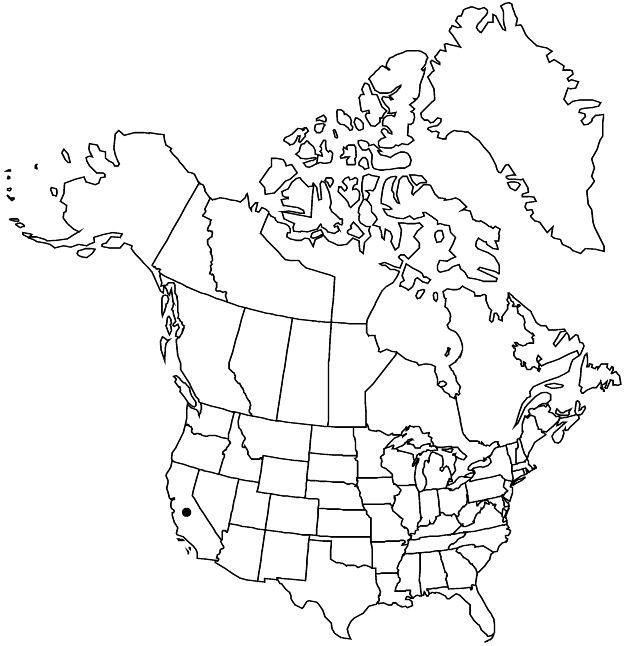Ceanothus roderickii
Four Seasons 2(4): 23. 1968.
Shrubs, 0.1–0.5 m, moundlike. Stems prostrate or spreading, arcuate, often rooting at distal nodes; branchlets brown to grayish brown, rigid, puberulent, glabrescent. Leaves both fascicled and not on same plant, axillary short-shoots erect; petiole 1–2 mm; blade folded lengthwise abaxially, elliptic to oblanceolate, 4–12 × 2–6 mm, base obtuse to cuneate, margins not revolute, entire or denticulate near apex, teeth 3–5, apex obtuse, abaxial surface pale green, glabrate or sparsely strigillose between the veins, adaxial surface green, glabrate. Inflorescences terminal or axillary, 0.6–1.4 cm. Flowers: sepals and petals white to pale blue; nectary blue. Capsules 4–5 mm wide, usually not, sometimes weakly lobed; valves smooth or slightly rugulose, sometimes ridged, horns absent or weakly developed bulges, intermediate ridges absent.
Phenology: Flowering Apr–Jun.
Habitat: Rocky soils derived from gabbro, chaparral, pine woodlands.
Elevation: 200–600 m.
Distribution

Calif.
Discussion
Ceanothus roderickii is restricted to a few localities in the foothills of the Sierra Nevada (El Dorado County). A close relationship to C. cuneatus var. cuneatus is supported by molecular data (T. M. Hardig et al. 2000b). The ability to root at remote, distal nodes was shown to enhance density and recovery, long after episodic establishment from seeds following fires (R. S. Boyd 2007).
Ceanothus roderickii is in the Center for Plant Conservation's National Collection of Endangered Plants.
Selected References
None.
Lower Taxa
"thick" is not a number.